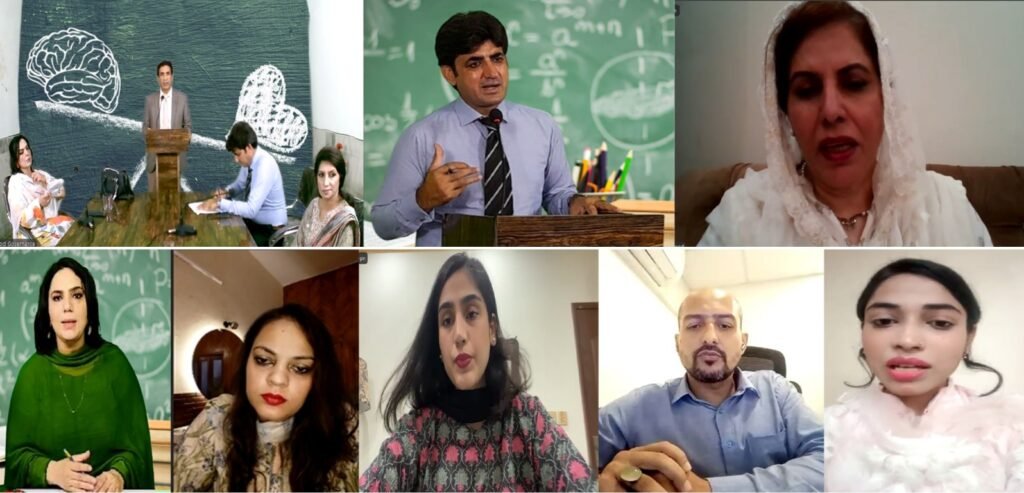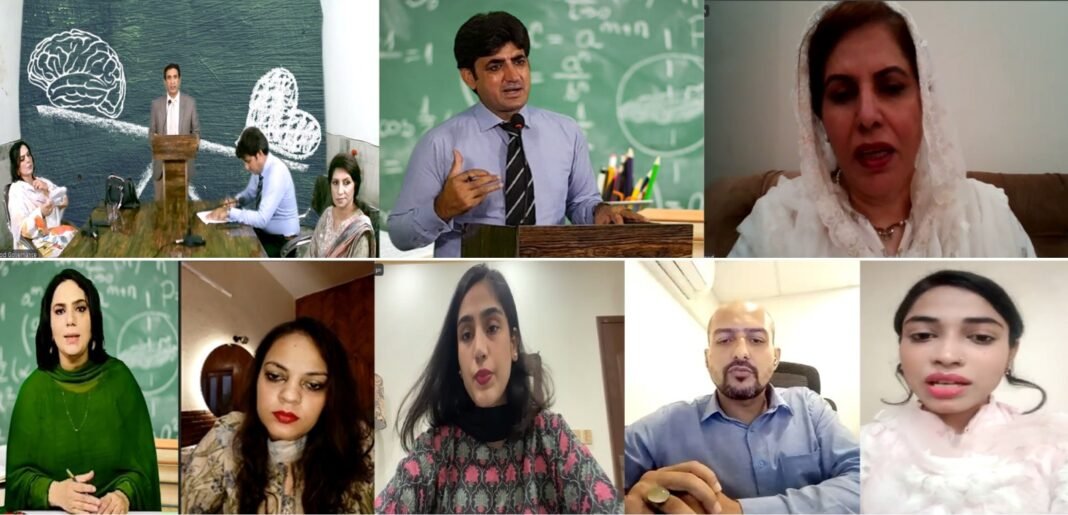
ISLAMABAD : Pakistan’s higher education sector is facing a critical turning point, and without urgent and comprehensive policy reforms, it risks further decline in quality, access, and global relevance.
This alarming concern raised by educationists, researchers, and policy analysts during a thought-provoking webinar hosted by the Alliance Good Governance Foundation.
The event brought together academic voices from across the country to highlight the deeply rooted challenges in Pakistan’s education system and the dire need for a forward-looking, practical approach to reform.
The webinar, titled “Shaping the Future: Reforming Pakistan’s Higher Education through Policy Innovation,” aimed to thoroughly analyze the key shortcomings of the current education structure in Pakistan and propose actionable policy recommendations.
Participants underscored that mere surface-level changes would no longer suffice.
A complete overhaul of the system — from curriculum development and skills training to governance and infrastructure — was deemed essential for the nation to thrive in an increasingly competitive global knowledge economy.
Opening the discussion, Dr. Mubashaira, a renowned health expert and educationist made a compelling case for placing policy reform at the heart of national priorities. “We are not just talking about an educational crisis — we are looking at a systemic failure,” she said. “Without meaningful reforms, our institutions will continue to produce graduates who are not equipped for real-world challenges. We must emphasize practical, hands-on learning instead of outdated theoretical models that no longer serve the needs of society or industry.”
She stressed that Pakistan’s education policy must be restructured to integrate employable skills, innovation, and technological literacy from the ground up. “Our students must be given exposure to practical fields like coding, digital media, AI, and entrepreneurial skills, rather than being locked in rote memorization and rigid classroom formats,” she added.
Another speaker, Kanwal Bijoro, a young and passionate education advocate, called for urgent attention to Pakistan’s rural and underdeveloped regions, where educational infrastructure remains shockingly poor. “The disparity between urban and rural education is widening, and unless we invest in rural schools and colleges, we are effectively writing off a large portion of our population,” she said.
Bijoro argued that real transformation would only occur when remote and marginalized communities are empowered with equal access to quality education. “We need to provide not just buildings, but trained teachers, digital access, learning tools, and ongoing professional development. Our policy must shift to ensure no child in any part of Pakistan is left behind simply because of geography.”
Speaking on the importance of skill development, Dr. Shahida Naveed emphasized that a skill-based education system is the backbone of any thriving economy. “The future belongs to those who can adapt, think critically, and apply practical skills,” she noted. “Traditional education models that ignore these elements are no longer sustainable. Pakistan must embrace skill-based learning if we are to bridge the gap between academia and industry.”
Dr. Shahida stressed the importance of government and private-sector collaboration in promoting vocational education, technical training, and industry-linked certifications. “We must change our mindset as a society — not all success comes through a university degree. Skilled technicians, creative professionals, and digital entrepreneurs are just as crucial to nation-building.”
Syed Yasir Ali, a curriculum specialist and policy researcher, drew attention to the outdated content taught across many Pakistani colleges and universities. “Curriculum redesign is not a choice anymore — it’s a necessity,” he asserted. “We are still teaching models and theories from decades ago, completely disconnected from today’s technological advancements and market needs.”
He proposed a national curriculum development task force that brings together academics, industry leaders, and policy experts to create a dynamic and evolving education framework. “Curricula must be flexible, adaptive, and locally relevant, while still aligning with global standards,” he said.
Alliance Convenor Dr. Tariq Khan, who concluded the session, echoed the sentiments of all the speakers and urged the government to show political will and strategic focus. “Pakistan is standing at a crossroads — we either take the path of reform, technology, and global competitiveness, or we risk falling into deeper crisis,” he said. “Our higher education system must reflect the reality of a changing world, and that includes digital transformation, environmental literacy, entrepreneurship, and inclusive access.”
Dr. Khan called for a national education emergency to be declared, where all stakeholders — government, civil society, universities, parents, and the private sector — work together on a unified roadmap. He said that in today’s digital age, policy should also address AI literacy, climate awareness, and cross-disciplinary education to prepare a new generation of thinkers and innovators.
Participants also emphasized the importance of accountability and governance in educational institutions. They pointed out the lack of monitoring and quality assurance across many public sector universities and colleges. Without strong oversight and consistent evaluation, speakers said, reforms would be short-lived and ineffective.
The webinar concluded with a unanimous resolution urging federal and provincial governments to take immediate steps toward educational policy reform, particularly focusing on long-term planning rather than short-term fixes. Key recommendations included establishing a National Skills Council, revising higher education governance structures, increasing public investment in education to at least 4% of GDP, and launching nationwide teacher training initiatives.
The Alliance for Good Governance Foundation announced that it would compile all suggestions and research findings from the webinar into a white paper to be submitted to the Ministry of Education and the Higher Education Commission (HEC) for review and action.
In summary, the session delivered a clear and urgent message: Pakistan’s higher education system is at a tipping point, and without bold policy reform, the dream of a skilled, educated, and empowered generation will remain out of reach. The time to act is now.
Sohail Majeed is a Special Correspondent at The Diplomatic Insight. He has twelve plus years of experience in journalism & reporting. He covers International Affairs, Diplomacy, UN, Sports, Climate Change, Economy, Technology, and Health.






![logo-1[1]](https://globalnewspakistan.com/wp-content/uploads/2025/01/logo-11-e1737618310315-300x187.png)